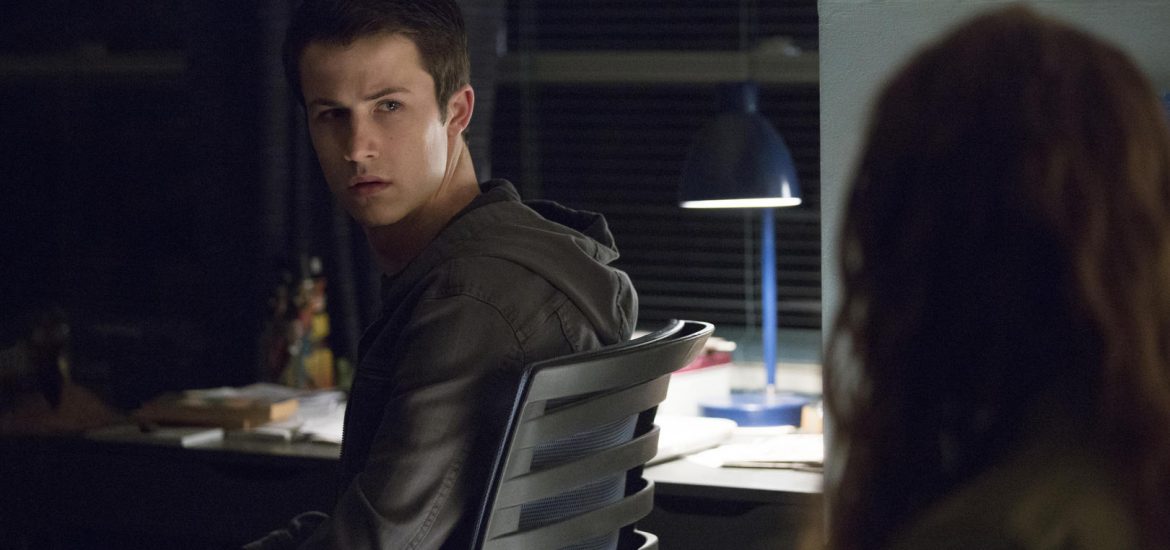With Stephen Novak
Mark Goulstone is a psychiatrist and best-selling author behind the book “Just Listen”. He has studied both teen psychology and suicide for 30 years. With his hour-long podcast and extensive training in hostage negotiation.
It turns out he’s also quite the Netflix watcher, we asked him about his thoughts on media, the internet and 13-Reasons Why.
Young Entertainment Mag: Some researchers noted that the release of “13 Reasons Why”, a show directly talking about suicide and what happens after, correlated with an up rise in teen suicide during its run time. Do you think that there could be a relation or was this simple coincidence?
Mark Goulstone: Yes, I think there is a relationship. All people and especially teens are continually looking and listening for something that is immediately relevant to them. Teens feeling alone in the pain that is demonstrated in “13 Reasons Why” are looking and listening for something they can relate to and that relates to them that will alleviate the pain and the aloneness. That show may have done that with teens who are depressed and feeling alone and as teens identified with the main character – and felt the main character identified with them – teens identified with the relief from endless pain that dying by suicide offered.
Young Entertainment Mag: People often question the reliability of simply “spreading the word”, words like “Arm-chair Activist” get thrown around a lot. Is there an extent where “Awareness” simply doesn’t work anymore?
Mark Goulstone: Activism without solutions that are immediately relevant to the people they affect and that are “doable by regular people” or solutions that appear to not work or even worse, no solutions, can often get people agitated without having a meaningful solution. It’s like turbocharging a toddler’s tricycle.
Young Entertainment Mag: When people view something like suicide through the lens of “Fiction”, do you think it makes it easier to digest or does it create an unhealthy and romanticized version of the act in the viewers mind?
Mark Goulstone: People are drawn to fiction both to escape their lives and also to see/read something they can identify with. As long as the fiction leads to a healthy, hopeful positive resolution of challenges and crises that readers/viewers can identify with, it’s helpful. However, if it leads to negative endings, that can be dangerous to people whose minds are overly suggestible.
Young Entertainment Mag: In the second season of 13 Reasons Why, the protagonist sees hallucinations of the girl that took her own life. How does this relate to our own reactions to the loss of loved ones? Obviously, no one gets to have a personal version of the deceased in their minds, but it could say something about processing grief.
Mark Goulstone: Hallucinations often serve a purpose of fulfilling an unmet or thwarted need in us. The need can range from the positive need to find hope when we feel hopeless to the need to be punished for something, we feel guilty or shameful about.
Young Entertainment Mag: How should someone that find themselves responsible for another person’s death cope?
Be that either bullying the victim or failing to notice the red flags.
Mark Goulstone: Some recommended actions include:
- Make amends as best they can to whoever is left behind.
- Speak to a therapist;
- Go to confession or speak to a religious person from their church, synagogue, etc;
- Take action to counter bullying wherever they find it;
- Join a support group for former bullies who are also dealing with their guilt and shame.
Young Entertainment Mag: You often note that teens don’t feel comfortable talking with their parents as they see it as a “failure” on their part, particularly due to the stigma surrounding depression. Do you feel this will remain? Or do you have hope that the stigma and support routes are opening up.
Mark Goulstone: Teens often don’t feel comfortable speaking to a parent about their mental issues because: a. they have little confidence that it will make them feel better; b. they believe it will just burden or freak out their parents especially if it will take time and money away from parents that they don’t have; c. they believe that if doing so makes them feel worse, they’ll just feel more alone and in despair; d. they believe that it will make the feelings worse and not realize that doing it and crying will actually cause them to feel better. I hope this will change. I’ve observed that parents and the world don’t lack the “will” to speak with their teens about depression and suicide and that teens don’t lack the will to do it from their end. What they all lack is a “way” that feels doable by them. That is one of the reasons that we came up with the process of Targeted Interventional Empathy (TIE) and the Seven Words that we demonstrate in our Episode #7 of our documentary,
Stay Alive: An Intimate Conversation About Suicide Prevention. TIE give people a “way” to get teens who are depressed to open up (see: Hollywood High meets the Seven Words).
Young Entertainment Mag: What do you see in modern televisions depictions of mental illness that you find to be untrue?
Mark Goulstone: It’s not exactly untrue, but modern television and movies truncate the length of time and challenges it takes to find and receive the kind of help that makes a difference in teen’s lives. When teens are in excruciating pain over depression and anxiety and suicidality, TV and movies don’t adequately portray how time consuming, frustrating, exhausting and costly finding and receiving help can be.
Young Entertainment Mag: Is there anything that modern media does right when it comes to mental illness?
Mark Goulstone: They do give the links and phone numbers and encourage people who are having problems to contact for help. They also do provide plenty of programs positively dealing with mental illness. The challenge is getting teens and their families to watch that. This is why celebrities coming forward about their battles with mental illness are very helpful about reducing the stigma. Celebrities coming forward is critical to erasing the stigma, because people – especially teens – will listen to what celebrities say longer than they will listen to any expert type trying to educate them.
Young Entertainment Mag: Do social media websites like Facebook, Twitter, Instagram have any responsibility to monitor cyberbullying, or is that solely on the user?
Mark Goulstone: I believe they all have responsibility to monitor it in both a proactive as well as a reactive way after bad things happen. The reality is that companies like Facebook, Twitter and Instagram are just like people in that they don’t do what is important. They do what they truly care enough about. You can tell what people truly care about in their actions and more importantly their sustained actions after the newsworthiness has passed.
Young Entertainment Mag: The third season of 13 Reasons Why takes place long after the funeral and hallucinations from her suicide but will still show a world after the loss of Hannah Baker. What are some of the later stages of grief and how could that properly be reflected in a respectful manner?
Mark Goulstone: Grief is the process of letting go of a future that has been taken away forever, that you expected to live into. Grief has been mostly completed when people accept living with life never being the same again. What that means is that life being different without a person doesn’t mean that those left behind won’t ever laugh, be happy or love again. Different doesn’t mean over.
What would be respectful and helpful would be a gathering of those left behind who contributed to her suicide demonstrating remorse, making amend, and committing themselves to activities to rehabilitate the hurtful and mean parts of their personalities. It would also help to have a gathering of those who didn’t contribute to the suicide where they share their could have, should have but didn’t stories of conveniently ignoring or minimizing Hannah’s cries for help.
Young Entertainment Mag: What do you think of the recent loss of Desmond “Etika” Amofah?
Particularly his comments on how social media “Consumed” him.
His death serves as a special case, as not only was the man in question a large online figure, but
his journey was highly documented online via twitter and youtube.
Mark Goulstone: I think Etika’s death by suicide and his reaching out to people in the time before it demonstrates some alarming trends. Social medial tech companies, especially Facebook, Twitter and Instagram have addicted many teens to adrenaline. More powerful than the excitement from an adrenaline rush is the rapid plummet from an adrenaline crash. As great as a teen can feel from the excitement of an adrenaline rush is as awful as they can feel from an adrenaline crash. And most teens are not prepared to deal with it.
Most teens seem to run on four emotions: excitement, boredom, fear and anger. These can lead teens to feeling excited, listless, agitated, fragile and brittle. The antidote to adrenaline basedlives and adrenaline based connections (just go to any eSports conferences or rock concerts) is oxytocin, which is the hormone connected to people feeling emotionally connected and bonded to each other. But in an adrenaline immersed culture, oxytocin is too slow, too boring and too laborious, unless of course you’re the recipient of it through someone else’s compassion, patience and tenderness.
My participation in an afterschool activity at Hollywood High gave the high school teens a taste of
oxytocin and by their own admission, felt better than running on excitement, boredom, fear and anger.





